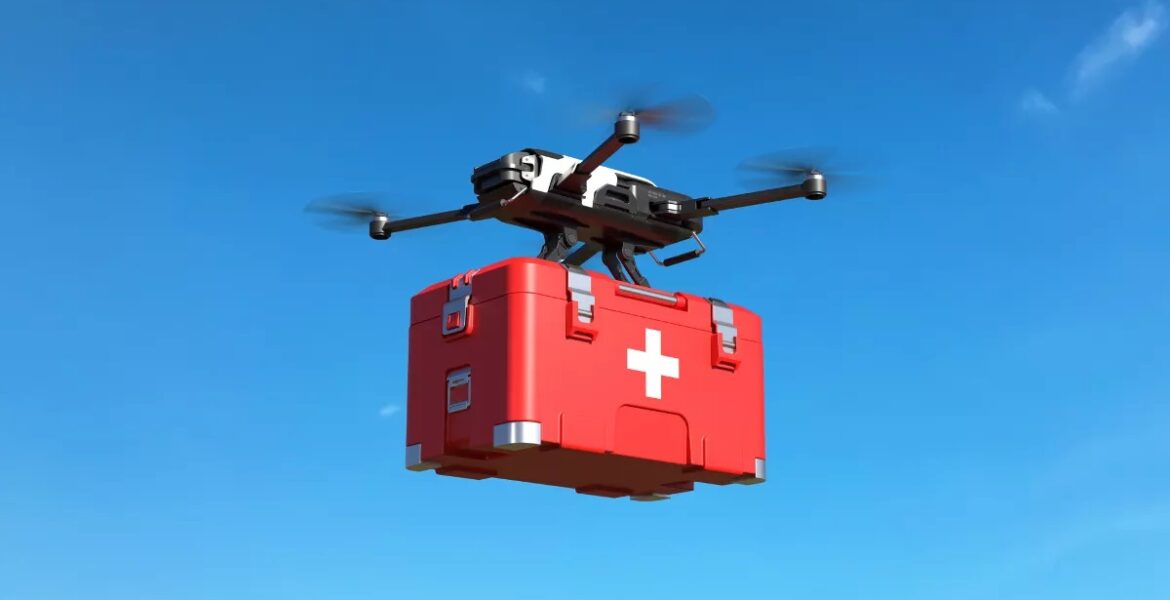The pilot operation of a program to send medicines with drones highlighted the need to use new technologies to benefit the permanent residents of the Greek islands.
The issue of a lack of medicine or even a pharmacy on the smallest Greek islands is overcome thanks to drone deliveries. In the same way, biological material will also be transported so it can be examined when necessary facilities do not exist on the islands.
"We can send medicine by drone. Medicines with drones are possible, and we are already testing this in Naxos and the Small Cyclades," noted Prime Minister Kyriakos Mitsotakis at the 5th Ygeia Mou Conference.
Mitsotakis explained the areas where Artificial Intelligence is useful, reiterating that it cannot replace medical, nursing, and other health personnel. For example, he mentioned air freight, which cannot be done through Artificial Intelligence.
"You will need to go get this patient, if it is urgent, and take them to a hospital," he noted.
Sending medical supplies to islands, however, is something that can be done using technology. A pilot program of sending medicines from Naxos to the small Cyclades (Donoussa, Schinoussa, Heraklia) with drones has already been successfully implemented.
The drones were financed by Nova, which, in collaboration with the Greek start-up UCANDRONE, implemented the medical equipment transport program.
The pilot operation highlighted the need to exploit the possibilities offered by new technologies to meet the vital needs of permanent residents of the islands. All missions made during the pilot were safe.
According to Ygeia Mou, the Ministry of Health and the 2nd Health Region (YPE), responsible for the Aegean islands, are planning a more extensive program to send medicines and transport biological material for examination to and from the islands.
Based on the planning, a tender will be held for the project contractor in the second year. Testing is also an area that needs strengthening, as many islands cannot analyse samples.

At the same time as planning to send medicine by drone to the islands, telemedicine is being expanded, which the 2nd Health Region has already successfully implemented. Residents of small and remote islands can be monitored by specialised clinics of large hospitals in Attica and directed within the National Health System (NHS).
Telemedicine services are being expanded, and the National Telemedicine Network (EDIT), a project financed by the Recovery and Resilience Fund with a total budget of around 30 million euros, is being implemented.
The aim is to cover every corner of the country, including the islands, the mountains, and the rural areas.
Maria-Niki Georgantas is a columnist for Ygeia Mou. Translated by Paul Antonopoulos.
READ MORE: A Mediterranean Diet Linked to 23% Lower Mortality Risk in Women.


